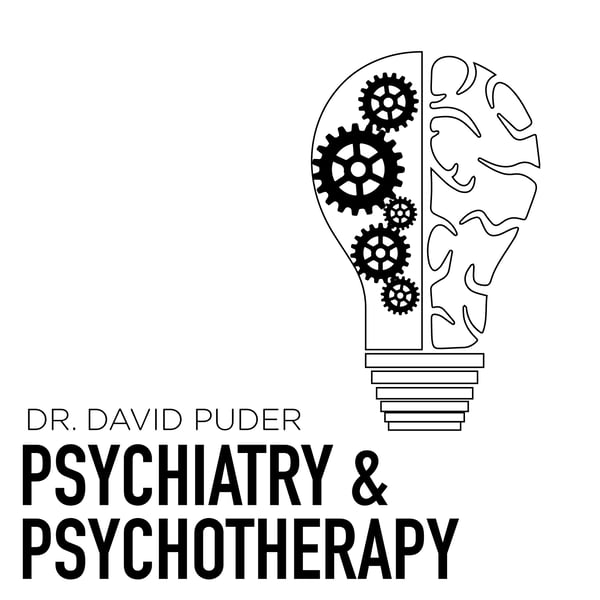Beyond the Myths of Psychosis: Understanding, Acceptance, and Paths Forward
Psychiatry & Psychotherapy Podcast
David J Puder
4.8 • 1.3K Ratings
🗓️ 13 December 2024
⏱️ 82 minutes
🧾️ Download transcript
Summary
In this episode, Dr. David Puder sits down with Dr. Stijn Vanheule, professor of clinical psychology and psychoanalysis, to challenge misconceptions about psychosis and explore paths to understanding and recovery. They discuss psychosis as more than a clinical label, delving into its connection to existential struggles and creative expression.
Dr. Vanheule explains primary-process thinking, how traumatic events can disrupt the mind's coherence, and the importance of empathic listening in therapy. Drawing on examples like Carl Jung's Red Book and Annie Rogers' creative processes, the conversation highlights the therapeutic potential of integrating psychoanalysis, creativity, and supportive environments.
Whether you’re a mental health professional, caregiver, or curious listener, this episode provides insights into how psychotic experiences can be understood, respected, and addressed through innovative approaches.
By listening to this episode, you can earn 1.25 Psychiatry CME Credits.
Transcript
Click on a timestamp to play from that location
| 0:00.0 | All right, welcome to the podcast. I am joined with Stain Van Hulow. He is a PhD |
| 0:20.2 | psychology, clinical psychology psychoanalyst at Gettin University in Belgium. He wrote a recent book called Why Psychosis is not so crazy. |
| 0:33.0 | He has over 220 peer-reviewed papers and seven monographs and has studied this extensively and welcome to the podcast. Hi, David. |
| 0:46.0 | So I think it's always good to start out with kind of like, what is your elevator pitch for why you wrote this specific book and what the book hopes to communicate? |
| 0:56.0 | Yeah, so this is a book in which I try to explain to a very broad audience, meaning both of professionals, |
| 1:06.7 | but like nurses and social workers, but also like families, and people who have problems with |
| 1:13.6 | psychosis to bring them a message about psychosis, a message about what is a psychotic experience, |
| 1:20.0 | and why is it not a fatal experience? Because I experienced in my clinical practice. |
| 1:26.3 | And also when I talk to people, |
| 1:28.4 | that many people have a very negative idea about psychosis. |
| 1:32.9 | And I want to shake that idea a little bit |
| 1:37.6 | by adding like a more subjective perspective, |
| 1:41.6 | like what is happening to someone and how, |
| 1:44.7 | and why is it not the end of the world when you start struggling with psychotic experiences? |
| 1:51.6 | Yeah, that is great. I always want to increase empathy, especially for things that seem very scary. |
| 1:57.8 | I think what I've experienced is that a lot of therapists specifically and there will be a lot of therapists who are listening to this or still somewhat intimidated maybe working with patients with schizophrenia |
| 2:08.6 | and psychosis and at least if they're early career clinicians, they may be that way. |
| 2:17.3 | So I think this will be helpful. |
| 2:19.1 | And it's a lot more common in the general population than maybe we would think. |
| 2:23.7 | Tell me how common is it and |
| 2:26.0 | beyond schizophrenia, beyond that level of severity. |
| 2:29.5 | Well, the good thing is that there has been quite some epidemiological research in the |
... |
Transcript will be available on the free plan in -107 days. Upgrade to see the full transcript now.
Disclaimer: The podcast and artwork embedded on this page are from David J Puder, and are the property of its owner and not affiliated with or endorsed by Tapesearch.
Generated transcripts are the property of David J Puder and are distributed freely under the Fair Use doctrine. Transcripts generated by Tapesearch are not guaranteed to be accurate.
Copyright © Tapesearch 2025.

